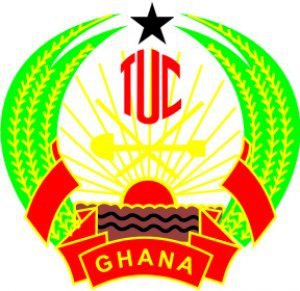The Ghana Trades Union Congress (TUC) has joined in the calls for government to consider regulating interest regime in the country.
According to the TUC, regulating the industry will contribute largely bringing down the rates being charged by industry players within the banking and non-banking financial institutions.
The TUC insists that the move is one way of the surest ways of government showing its commitment to the private sector which will lead to the creation of the much-needed jobs and a friendly business environment which will boost private sector participation.
But banking consultant, Nana Otuo Acheampong and some industry players which included MD/CEO’s of banks operating in Ghana, warn of a disaster should there be capping of interest rate on loans in the country.
According to them, once the country has decided to practice the free market economy, capping of interest rates defeats that purpose, suggesting that prices should be allowed to find their levels as it happens in free markets economies.
But speaking to the media on the sidelines of the May Day celebrations in Accra on Monday, the TUC’s General Secretary Dr. Anthony Yaw Baah said the government has the power to influence the interest rates regime by capping the rate which will force financial institutions to bring down the rates.
“There is nowhere in the world where only market forces determine determines rates. Government is government, they use regulations and polices to enhance business and to achieve their goals directly or indirectly. If government decided that, we are going to be fiscally discipline and we are going to cut down borrowing, I can tell you for a fact that, all those monies will be freed to the private sector to borrow. So indirectly government has huge influence on interest rates and if we want to go the regulations way, the government can say that, they think it’s unfair that somebody deposits money and receive an interest of about 10 percent.”
“But the same person can borrow the funds at about 40 percent which is not fair so we are going to cap it. You can charge any interest rates you want but the difference between deposits and lending rates should not be bellowing or above five percentage points,” he added.
With Ghana’s policy rate now at 23.5 percent, business lobbyists in the country have always made a strong case for a further reduction in the cost of doing business in the country.
According to the business groups like AGI, PEF, GCCI, GUTA among others, the high interest rate regime has deepened the challenge for most businesses especially SMEs, to access credit and expand.
The situation according to the groups has also contributed to the growing unemployment rate in Ghana.
Kenya is one of the few countries in the world to have put a cap on interest rates. The President of Kenya last year signed into law capping of interest on loans by 400 basis points, despite opposition from the governor of the central bank of Kenya.
The Governor Patrick Njoroge of the Central Bank of Kenya opposed the proposal which the Parliament capping interest rates terming it as a ‘dangerous development’.
Governor Patrick Njoroge told journalist that the regulator was concerned as the law would have a negative effect on the economy.
“Capping interest rates will be harmful... the proposal will defeat its purpose because the people who will suffer most are the poor. It will also encourage the emergence of informal lending.” he said.
Business News of Thursday, 4 May 2017
Source: thebftonline.com













